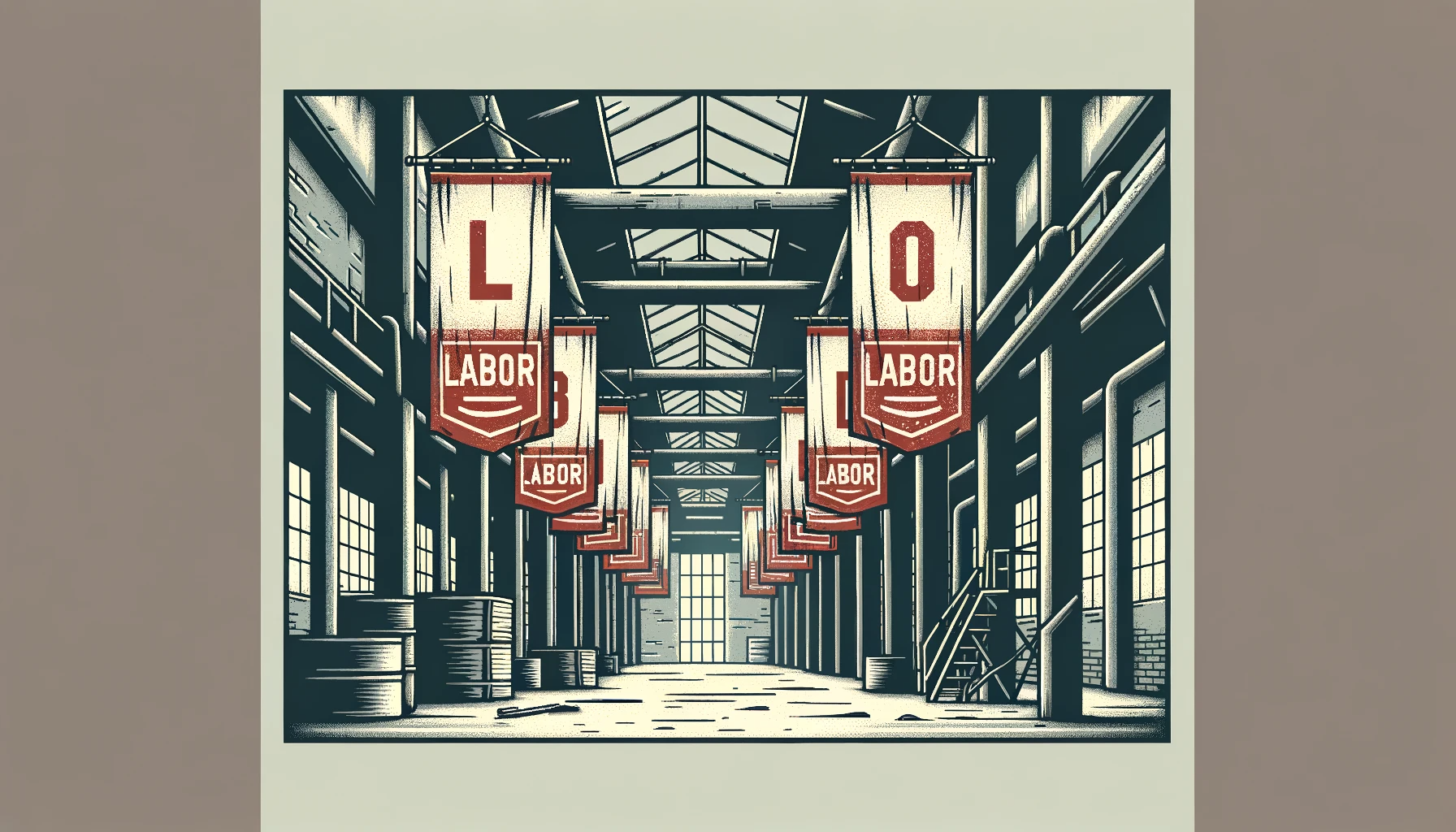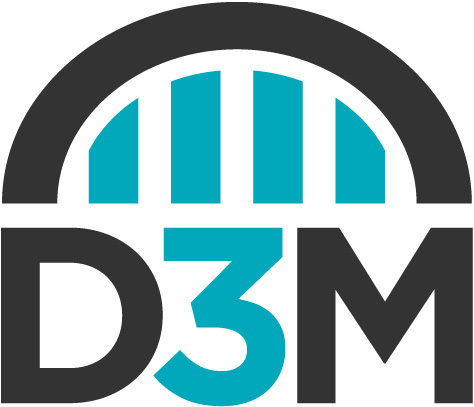Summary
In Lebanon, legal restrictions and political co-optation have made redundant traditional and officially recognised labour representation through workers organisations and federations. A small number of high-profile unions, federations, and individuals remain active as independent voices within a complex and restrictive context.
The current period of instability and vacuum of leadership presents both opportunities and challenges for organised labour’s contribution to a new social contract for all Lebanese. This requires new means of reaching, enabling and mobilising marginalised groups with weak structural and institutional power, and a concerted effort to re-establish class as a mobilising concept against deeply embedded confessional associations.
Introduction
During the 1990s Lebanon’s ruling elites successfully undermined the independence of the country’s primary labour representative body – the General Confederation of Lebanese Workers (GCLW – also known as the CGTL) which represents federations of unions.
With the institution of the confessional Taif Accords, this period further strengthened the dominance of confessional allegiances as a primary means of social contestation in direct competition with concepts of class solidarity and conflict.
The GCLW was co-opted through legal loopholes that allowed the creation of ‘fake’ federations with minimal membership which gained disproportionate representation within the GCLW leadership.
In 1972 there were only 14 federations in the GCLW – there are now 62, though the number of active unions (estimated to be around 600) remains unclear due to limited access to Ministry of Labour records. The GCLW however represents approximately only 7 percent of workers who are legally entitled to join a union.
Since the 1990s Lebanon’s industrial and agricultural sectors have declined in favour of the trade and services sectors. Lebanese employers are mostly micro- and small enterprises (91 percent of businesses employ less than five people). This is coupled with large refugee and informal worker populations and a robust system of exploitative labour importation. Lebanon has over 400,000 migrant workers who are excluded from the right to organise.
While Lebanon has not ratified the 1948 ILO Convention on Freedom of Association and Protection of the Right to Organise (No. 87), it has ratified other ILO conventions pertaining to the right to association and assembly.6 However, there are structural factors that significantly advantage employers against organised labour.
There are two main forms of workers’ organisations in Lebanon – unions and leagues. Unions require approval by the Ministry of Labour to be legal. This registration extends certain protections from dismissal, yet only to elected union officials.
Certain sectors – involving agricultural workers, migrant workers, and public servants (including the military), and liberal professions – are prohibited from forming unions. However public sector employees can create ‘leagues.’ Leagues are regulated by the Ministry of Interior as ‘cultural organisations.’ Unlike unions, leagues require default membership for all employees in the designated sector.
Syndicates (such as in engineering and pharmacy) are professional licencing bodies which require membership to trade in that profession. Such syndicates do not usually or necessarily perform the functions of workers’ organisations, however. Federations of unions refer to groupings of (usually small) unions, generally related by industry or sector.
Since 2019, workers across all sectors have seen huge declines in purchasing power (on top of long-term wage stagnation in many sectors) – yet the GCLW has remained largely inactive and heavily co-opted by ruling political elites.
As the formally recognised peak representative body of organised labour, the GCLW is positioned as a major impediment to independent union action, necessitating alternative pathways for organising labour. Existing unions may be worth working with, but they need to be supported to work outside of the GCLW structure.
In the past decade, the most successful organised labour campaigns have come from organisations that are not formal unions (such as leagues), have only recently been established as unions, or that have split from GCLW membership. They provide lessons on potential alternative organisational arrangements that have achieved successes by circumventing official and unofficial government control measures.
1. Notable Case Studies
The Union Coordination Committee (UCC) est. 2012
The UCC is a coalition of the League of Public Sector Employees, primary and secondary public school teachers’ leagues, and the Association of Private School Teachers. It is the largest workers coalition in Lebanon, representing more than 200,000 wage earners.
These previously separate leagues allied in 2012, in what became a protracted, highly politicised – and for some years unsuccessful – campaign for a wage increase and a new salary scale for civil servants and public and private school teachers.
The leagues under the UCC are strengthened by structural factors, including automatic membership for teachers and civil servants; restrictions on the creation of competitor leagues to represent these workers; and regular elections that somewhat mitigate sectarian divisions.
Political party affiliations are strong within the UCC however and have dominated its governing board since 2015, when its leader most independent of ruling parties – Communist Party candidate Hanna Gharib – was unable to win a majority in leadership elections.
National Federation of the Unions of Workers and Employees of Lebanon (FENASOL) est. 1966
FENASOL has a long history of action and decision-making independent of the GCLW. In 2015, with the support of the ILO, it led the establishment of a union for migrant domestic workers –declared illegal by the Ministry of Labour. They also advocate for migrant workers in other sectors.
It is also the only federation to have amended its by-laws to allow workers to join and become equal members regardless of nationality, gender, race, and sector, in line with international labour standards.9
Its structure also helps it to operate in currently neglected sectors, such as the migrant worker sector – the prevalence of which (around 400,000 workers) provides downward pressure on Lebanese workers’ bargaining power.
FENASOL has been the most active in linking the power of organised labour to broader social movements.
Spinneys Workers Union est. 2012
The Spinneys Workers Union was successfully registered with the Ministry of Labour in 2012.10,11,12 According to experts who followed the case closely, this was only possible however due to individual legal rulings at the time that protected the workers from dismissal before the union was registered. The high-profile case was coupled with intense civil society and media attention supporting the unionising workers.
A subsequent 2019 court ruling on the case of three workers dismissed by the supermarket chain for attempting to form the union set a legal precedent supporting the establishment of new independent unions. The court ruled it was a criminal offense to fire the workers for attempting to establish a union.
The case has the potential to be replicated across targeted companies and sectors – an approach more suitable to Lebanon’s fragmented labour market.
The Union of Agricultural Workers (UAW) est. 1994
The UAW is a little known but healthy example of the potential for unions to combat sectarian identity divisions and replace the services of clientelist parties. This includes the establishment of a mutual healthcare fund for members and their families, which now covers expenses for primary, secondary, and tertiary health care for around 32,000 individuals.13
In addition, the union offers a wage protection scheme to compensate members who are not earning a wage due to illness. It has also moved into cooperative activities which aim to improve value-chain outcomes for farmers.
Professional Associations
The Beirut Bar Association has previously criticised government policies towards wage increases14, however there are significant concerns about the political exposure of the Lebanese judiciary as a whole.
Since October 2019, professionals from other sectors have joined an umbrella grouping in the Lebanese Association of Professionals (LAP). They include health professionals, engineers and architects, lawyers, social workers, journalists, researchers, artists, and academics.
However, the enterprise bargaining model of labour organisation in Lebanon means such an association faces challenges in organising groups of employees, self-employed, freelancers, and employers under one organisation who all have different working arrangements, and often in small groupings.
Federation of the Syndicates of Bank Employees (FSBE)
Bank workers (25,000 employees) are the only workers in Lebanon to benefit from a collective contract. The FSBE has at times expressed solidarity with other unions and opposed subsidy reductions that would impact the poorest in society.
2- Programme Options and Considerations
The Covid-19 pandemic and economic crisis have dramatically impacted the status of Lebanese workers. In 2020 jobless rates increased by an average 23 percent for full-time employees. The construction, hospitality and manufacturing sectors have lost 40, 30, and 26 percent of their jobs respectively.15
This means Lebanon’s labour market faces highly precarious employment and a weak bargaining position. Renewed campaigns for reformed labour relations should therefore be linked to the re-negotiation of the social contract that has characterised the October 2019 revolutionary mobilisation.
A key goal should be to establish universal social protections (such as healthcare and education) and remove the reliance on employer contributions to pay social security benefits for staff. Not only does this represent a financial burden that many small enterprises may struggle to afford, it also disincentivises disruptive action for fear of losing long-term benefits. This would be one element of a broader rethinking of labour relations in the Lebanese context, away from a model of enterprise-based employer-employee contestation to a more horizontal form of industry-based worker organisation.
This is also important to counter what has been described16 as a cultural problem of grievance-based individual approaches to unionism – where workers’ organisations are treated as a ‘complaints office’, rather than as a channel for consistent campaigning and worker solidarity.
Overall, it is important to build more comprehensive worker unity based on solidarity of class interests against political and confessional division. In general, independent workers’ organisations need to build wider alliances with civil society and rights movements to highlight the centrality of labour rights within the broader social contract.
The case studies of the Domestic Workers Union (supported by FENASOL) and Spinneys Workers Union highlight such the gains from increased collaboration between trade unions and civil society organisations.
Another challenge is the weak structural power of workers in a non-productive rentier economy. In Lebanon, the ruling class’s ability to make money from non-productive sectors limits workers abilities to leverage their own exploitation. However, the financial and banking crisis in Lebanon represents a moment where one of the main means of rent accumulation is being disrupted.17
Experts also noted that project-based funding of unions has also compromised the consistency of their work and continuity of staffing. The GCLW exercises power over member federations and unions by controlling funding for its members. Long-term support and sustainable funding models would help the independent union movement counteract this pressure.
3- Policy Recommendations
Progressive actors in Lebanon should target the sectors that most strongly characterise the gaps and inequalities in existing Lebanese labour laws. These include sectors prohibited from forming unions; informal workers; high-profile worker categories such as migrant workers, public sector workers, and the agricultural sector (where children and refugees form a large part of the workforce18); and sectors of highly vulnerable workers such as taxi and delivery drivers being drawn into the ’gig’ economy.
Progressives should also consider working with organisations with marked levels of independence and the potential to enact high-profile change. Due diligence should be taken however to assess the political exposure and sincerity of each actor’s position and intentions. These include:
– The Beirut Bar Association for example is currently led by a progressive independent, but future leadership may revert to more politically exposed candidates. Because of its influential membership and role in society, the current period of progressive leadership could be an opportunity to consolidate support for independent progressive candidates within the association.
– FENASOL, as the leading independent union federation in Lebanon is a priority target for support and/or cooperation in the development of working models for other federations.
– The Spinneys Workers Union should be considered for support and cooperation to garner lessons on creating new unions, raising legal awareness, and appealing to media and civil society support.
– The Independent Union Movement and Lebanese Labour Watch are recommended independent labour organisations continuing to campaign outside formal structures in the current context.
– The Union of Agricultural Workers can show how unions can combat sectarian identity divisions and replace the services of clientelist parties. It’s healthcare fund, wage insurance and cooperative activities make it a robust case study in improving union relevance and attractiveness.
The legal and political co-optation of traditional union formations in Lebanon has led most independent organisations and individuals to pursue completely unofficial organising models that are not reliant on legal approval. Since 2019, many self-declared groupings of professionals with momentum have emerged. Experts state that this is being done in an attempt to change realities on the ground in the hope they will later achieve recognition by law. In this context there are several options for intervention in Lebanon. They include:
Overarching:
- Comprehensive reform of the labour code: Removing the requirement for ministerial approval to register a union and expanding protection from dismissal to any union member (article 50 of Labour Law) are among the primary policy measures that would alter the landscape of labour-organising potential. Progress is unlikely in the current climate, however a completely re-written labour code could be developed in preparation for future reforms.
- Workers may lose rights through legal bargaining when in a weakened position. Protection of the universal baseline of freedom of association for all workers should be the underpinning message of any campaign.
- More support for federations seeking to break away from the GCLW is needed to further reduce its claim to recognition as the formal representative of unions, especially among international union movements and civil society. They should attempt to speak to union and federation members directly, with a clear and comprehensive list of the benefits of real representation. Independent funding models should be a key component of this, as well as draft bylaws that can be readily adopted to rapidly improve the scope of each union’s membership (and potential funding base).
Public dialogue is increasingly acknowledging the illegitimacy of the GCLW. As of mid-June 2021, relatively prominent syndicates such as the public transport drivers’ syndicate, the water suppliers’ syndicate and Middle East Airlines employees’ syndicate have joined general strikes against the decline of purchasing power as the Lebanese lira passed the US dollar exchange rate of LL15,000. - Progressive actors in Lebanon should engage in consultations with FENASOL and the Independent Union Movement on the formation of a new representational body with fairer internal governance regulations and include the federations that are most disgruntled with the GCLW.
- Organising models for small enterprises and informal employees that create sector-specific horizontal networks. These may involve worker organisations without direct contestation with employers. For example, the establishment of collective funds (in the same spirit as cooperatives) that do not rely on employer contributions. The establishment of new organisations – not necessarily unions given the current low likelihood of approval – that have bylaws which are open to all classes of workers within a sector.
Programmatic:
- Organising models for informal workers that provide them with a stable access to knowledge, resources, and legal support. This could include the concept of ‘workers centres’ that are open to all workers and would encourage worker solidarity across professions. Workers’ centres should incorporate vital education offerings that incentivise workers to attend. These can include basic skills and training – even literacy – as well as education about unions and workers’ rights.
- Awareness campaigns should create solidarity between workers of different nationalities. Non-Lebanese workers are a major proportion of the workforce. Unity with them will increase the structural power of workers as a whole and help negate the threat of immigrant labour replacing local labour. This requires targeting high-profile businesses where Lebanese and migrants work alongside each other, with campaigns that show their common humanity (healthcare, especially during the pandemic is a good entry point for example). These campaigns should be more practical and based on peer-to-peer engagement rather than social media. ‘Reconciliation’ models which have brought together formerly conflicting parties may be useful for this. For example, there is significant dissatisfaction among migrant RAMCO garbage collection and construction workers, who went on strike in April 2020 over changes to their pay during the current economic crisis.19 If a larger mass of garbage collection workers in Lebanon can be brought together this would represent a highly disruptive and identifiable force.
- Awareness activities, especially those based in communities, should seek to link the workers movement to rights-based movements around housing, water, electricity, and the environment. The credit facility of the UAW mentioned earlier is worth studying in detail to assess the potential for expansion to other existing unions. If membership in the union can become more financially beneficial, without direct wage increases, this could consolidate membership and allow stronger action in the future. These campaigns will need to build trust and confidence in the potential of unions after many years of little evidence of their effectiveness.
- Databases and mapping of workers’ options for labour organisation or legal support would help counteract the opaqueness of Ministry of Labour records on unions and memberships. This should seek to establish the number of unions, their activity status, membership numbers and distribution and leadership affiliations. Union data is held by the Ministry of Labour and even specialist researchers struggle to gain access. The lack of awareness about basics figures, including the number of existing unions limits current efforts to reform.
- Supporting informal, micro- and small enterprise workers wishing to form or join an association or union should also be considered. This includes designing organisational structures and physical centres that promote worker solidarity. This should begin with surveying attitudes and networks among SME employees and informal sector employees to understand the on-the-ground reality and potential for support. One of the ILO recommendations most suitable for Lebanon’s context is to organise such workers into cooperatives. This allows organisation despite the major restrictions of the current labour code. It also provides a major financial incentive for highly vulnerable informal workers.
- The ILO also recommends creating affiliates for informal sector workers within existing unions. While Lebanese labour law is unclear on this, in the present context where the application and function of the legal system is weak, this could be a powerful mechanism that achieves several goals. It requires unions to amend their bylaws to include more flexible definitions of potential members. However, these potentially larger membership bases will allow more funding and structural power to each union – as well as enabling informal workers to access essential services and advocacy mechanisms. Independent funding will improve a union’s confidence in breaking away from the GCLW. Ultimately, the effectiveness of such efforts requires sincere and experienced leadership.




